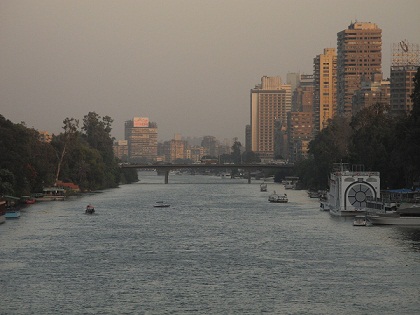
“History will always remember policemen’s role in keeping the peace and security, and protecting human rights.” This is one of the statements Al-Sisi made in his 30-minute police-glorifying speech during the celebration of Police Day which coincides with the 25 January 2011 Revolution. This is not a coincidence of course; as everyone knows, people initially rose against continuous police brutality under a dictatorship characterised by being a police state, where police has complete impunity and absolute authority over the people of Egypt.
Al-Sisi, of course, dedicated large portions of his speech to the horrors of terrorism and how our police is fighting bravely and under the “rule of law” and a “just judiciary system”. However, to me, the rest of the speech was sort of a blur… I stopped at the “police preserving safety and human rights” part.
The president’s words come on a day when thousands mourn loved ones killed at the hands of the police during the first days of the January revolution, when all Egyptians remember how the police disappeared on them, leaving behind a complete lack of security, they remember how they were forced to protect their own homes and families and streets.
Many Egyptians also remember how the police used all kinds of force in their attempts to curb the angry protesting youth. Hundreds killed and thousands detained and tortured in police stations and detention facilities…and not one policeman was punished for this until this day. In fact, the complete opposite happened, every ruler since then was dedicated to reward and woo policemen, whether by promotions, salary increases, pension increases, or acquittals from cases against them.
And since the police decided to work again after the revolution’s first 18 days, acts that can only be described as vengeance were taking place. Stories that some have doubted, but many others experienced, were told. On a very small scale, I had one of those experiences, when a police officer told me “go find the revolutionaries and ask them to help you”. With this same spirit, they have dealt with the people in everything, and the security situation deteriorated to the point where crimes like having your children kidnapped for ransom, women assaulted on the streets in broad daylight, cars stolen and street mugging, became regular with absolutely no help from the police force.
As for the human rights situation, which the president said they “protected”, it is not a secret that it is “catastrophic” as Amnesty International said in mid-2014. Under laws like the Protest Law and the Terrorism Law, the police detain just about anyone they “deem” worthy of jail. The detained would spend months in jail before standing trial, before being able to prove his or her innocence, if they could at all. A crime of being a “terrorist” would stick to you without any reason or evidence, and it is a regular occurrence that you get detained simply for being close to an ongoing protest. These random arrests resulted in Egypt having over 40,000 detainees in only one year (mid-2013 to mid-2014). Add to that the thousands arrested before and after…estimated at 12,000 during SCAF rule, and almost 5,000 during Morsi’s rule.
Last month, the United Group for Human Rights issued its annual report, which was a painful one albeit not very shocking to those who follow the news closely. The group’s Legal Aid Unit for Victims of Torture said that during the period between October 2013 and August 2014, 465 cases of police torture had been handled by the unit. Noteworthy is that this is only the number of those aided by the group and not a comprehensive number of torture cases in the country. It is regular that victims of police torture do not file complaints for fear of retaliation.
Noteworthy also is that 21% of the cases handled by the group are students. The usual means of torture, as cited by the Unit, are cruel beating, electric shocks, sexual assault, rape, and whipping. Of the 465, 123 died.
A farther look back, it would be clear to everyone that police brutality does not change with the change of the ruler, except of course, when they are publicly given the free hand to do so. Here are some numbers gathered from Wiki Thawra, citing only cases that cannot be argued with regards to police brutality; cases that happened after arrest and before trials or investigations, before being proven guilty (not that that is an excuse!). These cases do not carry questions of “circumstances” or “reality on the ground” as some would like to defend. I present the numbers with the ruling era they fell under only to show that police brutality is not limited to certain rulers:
- In the 18 days of the January 2011 revolution: 189 died from brutality inside detention facilities
- During SCAF rule: 47 died inside detention facilities, 48 died from excessive use of force by the police
- During the Brotherhood’s Morsi rule: 48 died inside detention facilities, 48 died from excessive use of force
- During Adly Mansour and Al-Sisi (July 2013 to January 2014): 80 died in detention facilities and 28 died from excessive use of force.
I do not understand how the president can thank the police for “protecting human rights” or for “keeping the peace and security”. What do the powers in this country expect as a result from such brutality and impunity? How can a nation rise when it is down on its knees continually receiving the merciless whip lashes from those who should protect it? How can the January revolution die if its main cause still lives?
Rana Allam is former Editor in Chief of Daily News Egypt and commentator on Egyptian affairs



